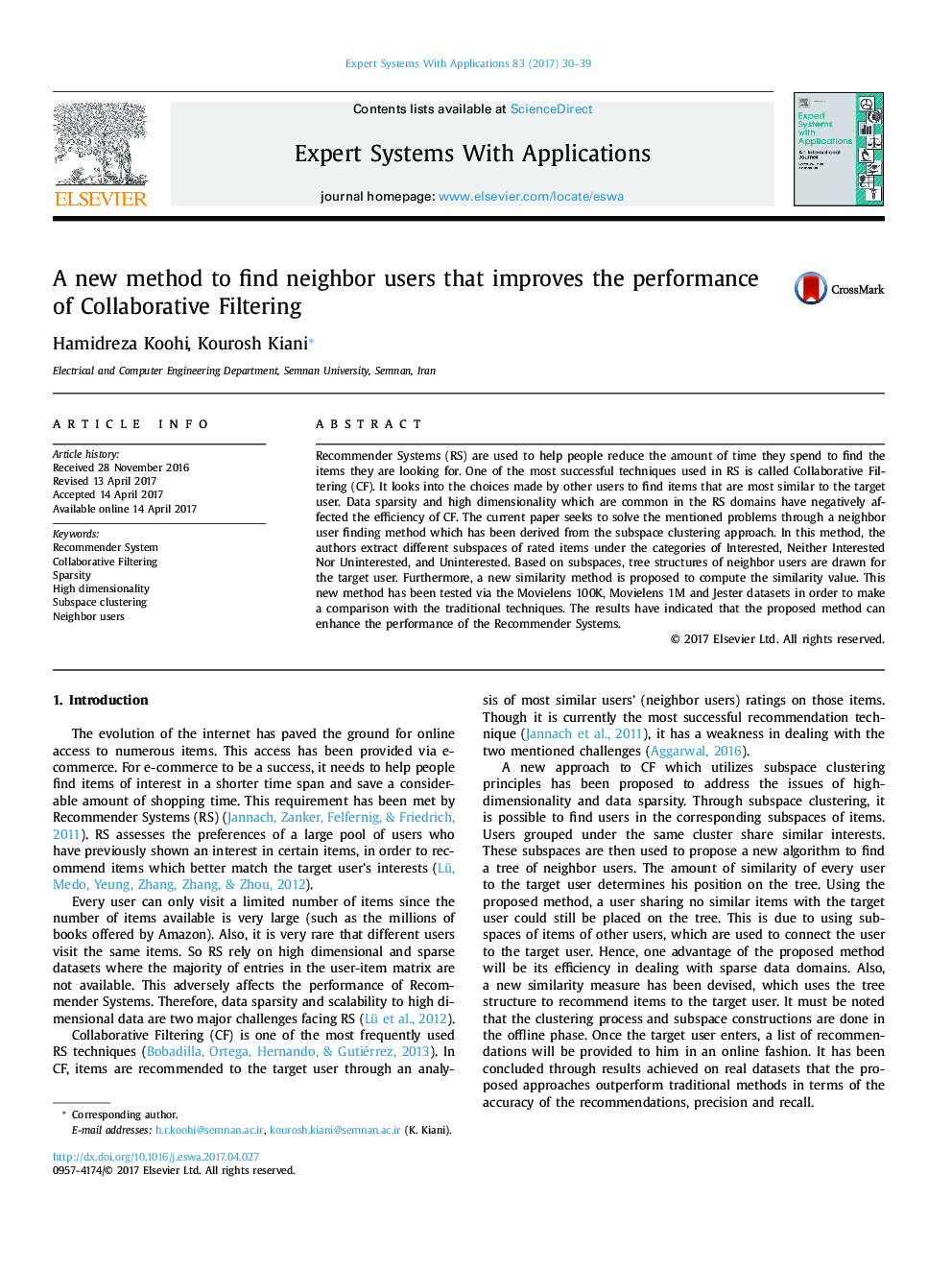| Article ID | Journal | Published Year | Pages | File Type |
|---|---|---|---|---|
| 4943072 | Expert Systems with Applications | 2017 | 10 Pages |
Abstract
Recommender Systems (RS) are used to help people reduce the amount of time they spend to find the items they are looking for. One of the most successful techniques used in RS is called Collaborative Filtering (CF). It looks into the choices made by other users to find items that are most similar to the target user. Data sparsity and high dimensionality which are common in the RS domains have negatively affected the efficiency of CF. The current paper seeks to solve the mentioned problems through a neighbor user finding method which has been derived from the subspace clustering approach. In this method, the authors extract different subspaces of rated items under the categories of Interested, Neither Interested Nor Uninterested, and Uninterested. Based on subspaces, tree structures of neighbor users are drawn for the target user. Furthermore, a new similarity method is proposed to compute the similarity value. This new method has been tested via the Movielens 100K, Movielens 1M and Jester datasets in order to make a comparison with the traditional techniques. The results have indicated that the proposed method can enhance the performance of the Recommender Systems.
Related Topics
Physical Sciences and Engineering
Computer Science
Artificial Intelligence
Authors
Hamidreza Koohi, Kourosh Kiani,
